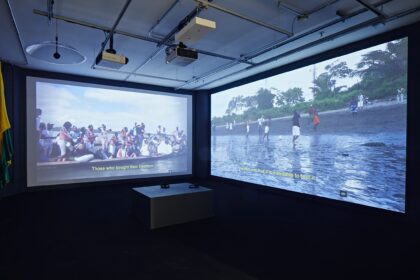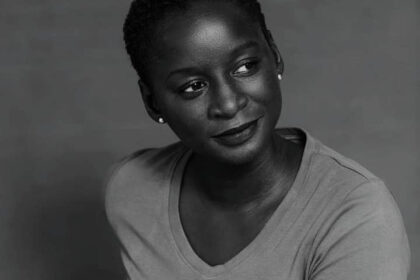Editorial | Spring 2023
I am pleased to introduce FIELD Issue #24 for Spring 2023. This issue has been guest edited by FIELD editorial collective members Primrose Paul and Laura Thompson. The issue presents a range of essays and interviews addressing the broader cultural impact of the Black Lives Matter movement (BLM) which emerged in the wake of the police killing of Trayvon Martin in 2012. BLM, and the broader cycle of protests catalyzed by the ongoing police killings of black Americans, inspired a range of new forms of cultural and artistic production/intervention over the past decade that span performance, site specific interventions, music and dance, as well as more conventional gallery-based practices. In this respect it recalls the innovative forms of cultural resistance generated by groups such as the NAACP as part of the anti-lynching movement of the early twentieth-century. As Moorfield Storey, the first president of the NAACP, wrote in 1922:
For Heaven’s sake, do not tell the negroes that their case is hopeless, that this great country cannot protect them from absolute wanton murder with the connivance and with the assistance of the officers appointed by law to defend them, and with absolute indifference on the part of the United States.
Sadly, little has changed over the past century, but these practices, and the broader social movement that inspired them, exemplify that optimism of the will that Gramsci evoked as the necessary condition for real change. This issue provides a representative sampling of this rich body of work. The essays include Bria Dinkins (former FIELD editorial collective member) examining the complex constellation of creative and critical meaning generated by protests directed against public monuments designed to reinforce racial subjugation (such as the Robert E. Lee statue in Richmond), Primrose Paul’s study of Afro Futurism as an emancipatory form of cultural resistance in the work of Omoruyi Eghosa, Emmanuel Massillon, and Sam Onche and Bellara Huang’s analysis of Almagul Menlibayeva’s AI Realism series, which explores the use of AI-assisted montage as a de-colonial practice, and Laura Thompson’s introductory text, which provides an overview of the development of this issue and the central themes explored by our contributors. This issue also features a set of four interviews with leading activists and artists by Laura Thompson. These include interviews with Shamell Bell, a key scholar and performer in the emerging area of dance activism, Leesa Kelly, the founder of Memorialize the Movement, which emerged in Minneapolis in 2020 following the murder of George Floyd by the police, the members of HomeWorks: Bronzeville, a collective that works to contribute to positive economic and cultural growth in the historically black Bronzeville neighborhood of Milwaukee, and the Million Artist Movement, which develops activist and community engagement projects in Minneapolis. I want to express my special gratitude to Laura and Primrose for all of the work they’ve put into this remarkable issue, as well as the contributors who so generously offered their time and insight to its creation.










